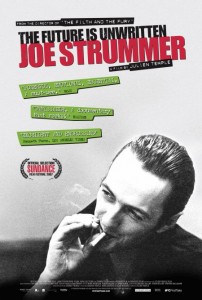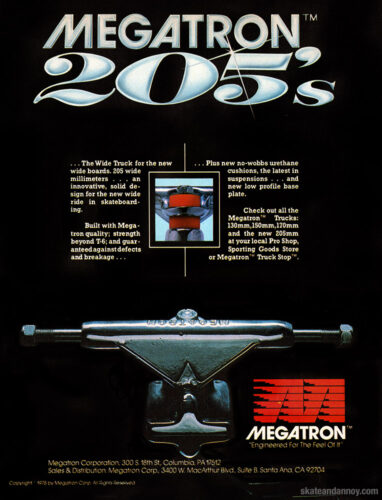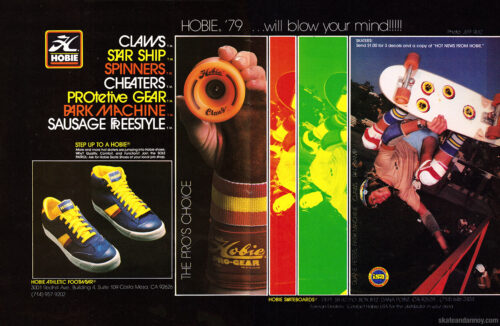Joe Strummer: The Future is Unwritten. A film by Julien Temple
“Nina Simone Si, Bernie Rhodes No!”
“Joe Strummer” has always been my answer to the question “Who would you like to be stuck in an elevator with?” He represents the perfect mix of aggro, intellect, and sensitivity. And it is no doubt that over time his sensitivity has emerged as his strongest trait. He cared about people, had an unmatched appreciation for world music, and when asked what he wanted to do with his life, his answer was “to groove”. All of that and he died of a failed heart while marching on an increasingly permanent trip of self-exploration.
Julien Temple’s optimistically and forebodingly titled new film, Joe Strummer: The Future is Unwritten, is great to look at. The Clash’s logos, slogans, clothes, obsession with Hollywood films, etc. played a huge part in why I liked their music to begin with and this movie is consistent with that highly visual nature of the band. And those as obsessed with the cinema as Strummer and The Clash need great movies made about them. As the opening credits roll, a short-wave signal crackles as Strummer’s name appears written in the AM/FM font behind the clear plastic tuning dial of a ghetto box- and the effect is classic radio-Clash for dread-people. Temple employs other cool techniques in the production such as having Joe’s voice recurring throughout the film as a DJ. This creates the spooky effect of old Joe indoctrinating us with roots platters from beyond the grave. The storyline is also enhanced by the inclusion of some strangely eerie b&w stock footage of British boarding school life as well as snippets from film versions of “Animal Farm” and “1984” (watch for Peter Cushing). Another highpoint is the depiction of the politics surrounding the early 70’s squatting scene in London.
This film’s greatest strength is that it doesn’t shy from revealing Strummer as a convoluted and often self-contradicting man. He apparently dealt with perpetual feelings of self-doubt in regards to his relevance as an artist and was plagued by extreme guilt (over breaking up the Clash and the death of his brother). Strummer was a geezer that could enact strict edicts of “no drugs” in his band and then later spend four days tripping in the forest on MDA. And don’t call him Woody! Ask Topper. Pleasantly, Joe confesses in the film to what was true all along – he was just as much hippy as punk rock warlord. Consistent with Strummer’s later persona as a kind of campfire Aldous Huxley, most of the film’s interviews take place around the flames of an outdoor blaze. The film’s only drawback would be its overall length, including a few too many of those interviewed spouting the same old points about the Clash/Strummer’s relevance. The people interviewed are also not identified and I honestly didn’t know who some of them were. The reflections by Scorsese, Buschemi, Cusack, Matt Dillon and many others are great though.
Kosmo’s signaling me to wrap it up at the 3:00 mark….
Rating: 4 out of 5 Rizlas
DrBrad












